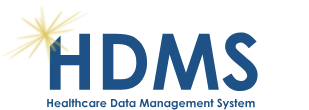 Your next complete Post-Acute Healthcare Software Solution
Your next complete Post-Acute Healthcare Software Solution
Trusted for 20 Years by the best in Home Medical Equipment, Medical Supply, Home Infusion, and Retail & Mail Order Pharmacies. Whether you are a two-person operation or a leading specialty health system, HDMS is the right solution. By leveraging all the features below or utilizing our API Toolkit to introduce them into your workflow where they suit your business needs best, HDMS will always be the right size
HDMS Is a Business Management Software That Will Run Your Business Leaner Than Your Margins
- Are you looking for a maintenance-free solution? By deploying HDMS to your private cloud, our solution will deliver safe, maintenance-free data.
- Are you looking to control your data?By purchasing an on-premise installation of HDMS, you can install HDMS into your server environment.
- Are you worried about the Implementation Timeline? We offer Data Conversion to get your staff working in ONE SYSTEM as soon as possible.

